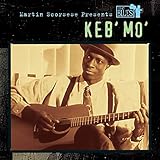
Not the Way It’s Supposed to Be: A Breviary of Sin
Cornelius Plantinga, Jr.
Sunday evening I led a oddly satisfying discussion for our college group on the topic of sin. Therein, I did not fully quote all my sources, except Scripture. Here I will correct that mistake by telling you about this little book by Calvin Seminary professor Cornelius Plantinga.
His book purports to be a breviary (def: brief statement; or book of prayers used by Catholic priests), a review of some of the highlights – lowlights, I suppose – of sin. All things considered, this is quite the book. It stretches and expands one’s concept of sin, always a good thing despite the pain involved. Even better, a clearer, fuller view of sin should make us love Christ all the more – sadly not one of the applications Plantinga focused on. Perhaps the most outstanding part of the book is the writing. This is, hands down, some of the best theological writing I have ever come across. It is clear and witty and deep and understandable. Simply for the joy of reading good writing while getting some hamartology (study of sin), it is worthwhile.
Plantinga brings his thoughts on hamartology to us through several snapshots of sin. Sin is first a vandalism of Shalom, the peace of Eden, the way it is supposed to be. Sin is next a corruptor, debasing to the core whatever it comes into contact with, save God. Sin is also a perverter, polluter, and disintegrator, taking good and making it crooked.
Next, Plantinga steps back and gives some thought to the progress of corruption, how exactly one sin leads to another, deeper sin; here is more mystery than light: We still do not know why a person succumbs to the motive. Sin is then shown to be a parasite, needing the presence of good to even survive: murder needs the good of life, lying needs the good of truth, pride needs the good of satisfaction, etc. Without good, sin wouldn’t, couldn’t exist. In this odd way, the presence of sin in the world can point us to rejoice in the good on which it feeds.
Following the parasitic nature of sin, the author turns to the deceptive nature of sin, not just to those watching, but especially to those sinning. The self-deceptive power of sin is one of the scariest thoughts we ought to think. It looks like half-baked apologies (Terrell Owens anybody?) and being convinced that whitewash is the same thing as interior decorating.
The next two chapters are a little more disappointing. Plantinga’s discussion on sin and folly begins with a less-than-biblical view of what wisdom is (instead of being the life of Christ in us, wisdom is “the knowledge of God’s world and the knack of fitting oneself into it”). With that definition of wisdom, folly isn’t seen as gravely serious, only problematic. But I do agree with the main point: The shortest and clearest way to state the relation between sin and folly is to say that not all folly is sin, but all sin is folly. The following chapter on addiction focused more on the tragedy of addiction than on what Ed Welch rightly calls the “worship disorder” of addiction. By voicing some support for Alcoholics Anonymous’ method of dealing with addiction, Plantinga shows himself to be more in the “generally spiritual” camp of counseling than in the Biblical or nouthetic realm of counseling. Not the Way ends with a chapter on the attacks of sin and a chapter on how we evade the responsibility of sin.
Again, this is a remarkable book for its excellent writing and deep thought on a serious subject. Here are the downsides: Knowing little of Plantinga’s theological stance, it is becoming increasingly hard to trust scholars from Calvin Seminary due to the seminary’s rapid descent into liberalism. Phrases like “the literature of Scripture” and of Adam and Eve, “the Bible’s primal pair of humans” ring a liberal tone to me. All this to say this book is not exactly a bastion of conservative orthodoxy. Along with that, Plantinga’s illustrations often strike a liberal political tone. The biggest downer of the book is its lack of focus on Jesus Christ as the comprehensive answer for the comprehensive problem of sin. The author doesn’t ignore Christ entirely, but it the book would have been much more fulfilling and helpful if, at the end of each chapter, he had taken a few paragraphs to show how Christ saves us from this part of sin, too.
Despite the downsides, this is a valuable book to which I’ll probably refer several times in the coming years. It gives clear insight into the “longest-running of human emergencies” – which all of us must face in our own lives and in the lives of those we love.





